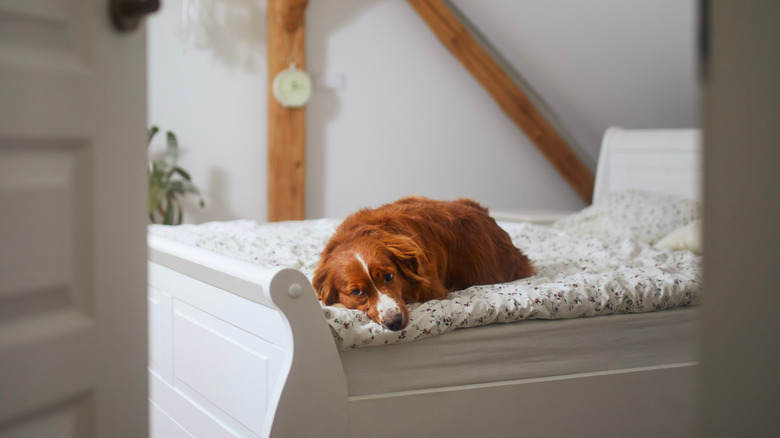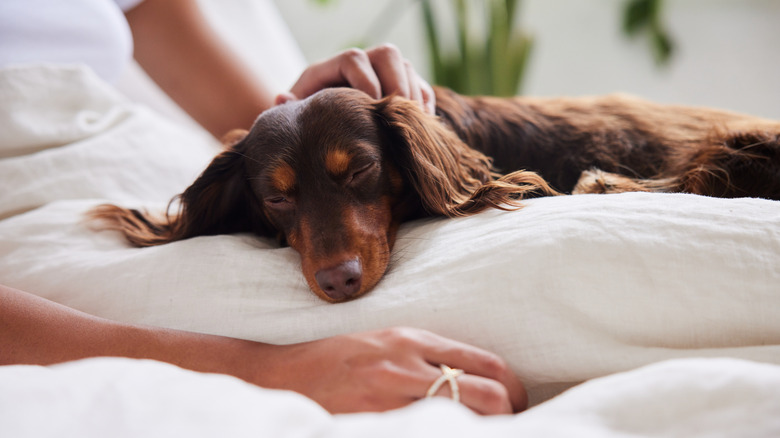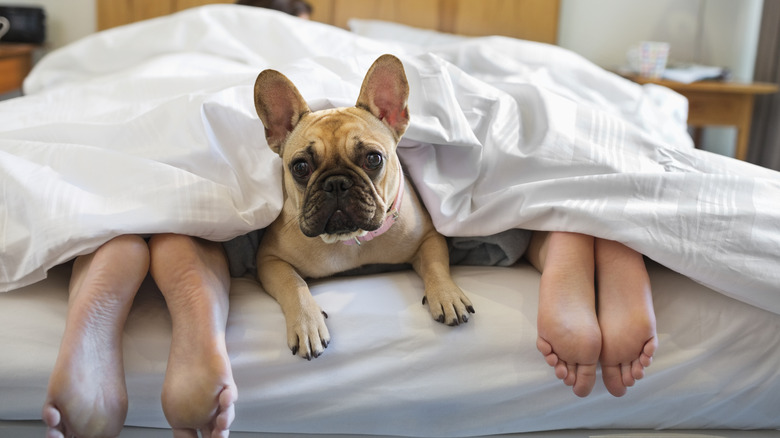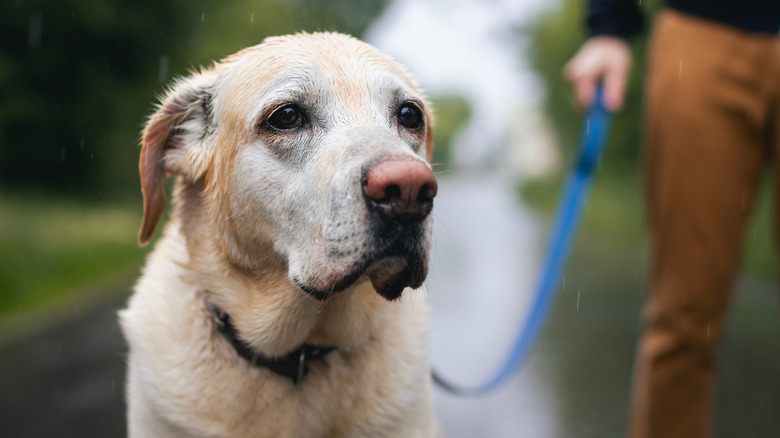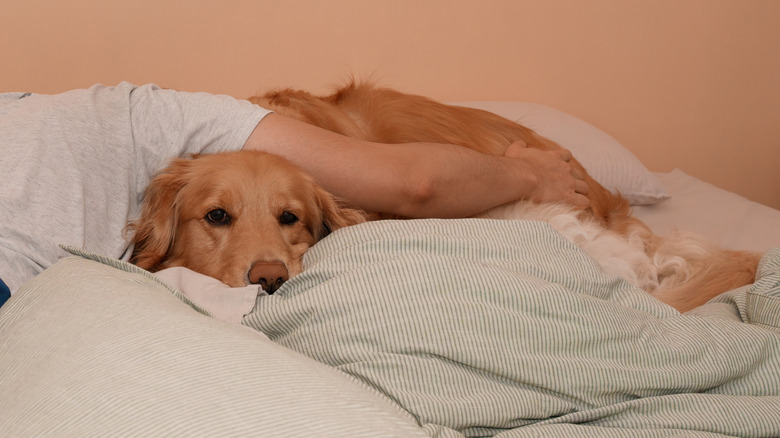Why Did My Dog Start Peeing In My Bed?
We may receive a commission on purchases made from links.
Your bed should be a sanctuary where you can rest and relax in peace, but sometimes that peaceful space may become unpleasant if your dog decides to use it as a bathroom. After all, no one wants to find or smell a puddle of pee on the bed.
Dogs pee on things as a way to mark territory, but urinating on your bed could have other causes, too. Health and mobility issues can lead to this type of inappropriate elimination, as can a lack of bathroom breaks throughout the day. To get to the bottom of your dog's urination issues, it's best to consult with your veterinarian to rule out illness as the cause of their unusual behavior.
They're sick
When your dog is sick, they can't simply communicate this to you with a conversation, so instead, they may take to sending you pee-mail. Major causes of inappropriate elimination include urinary tract infections, diabetes, spinal injury, kidney failure, and incontinence issues, according to PetMD. It's best to bring your dog to a veterinarian for a health checkup to rule out illness as the cause of your them urinating in inappropriate places. If your dog's bed-wetting is the result of a condition like a urinary tract infection, it should stop after a full course of antibiotic treatment.
They want to mark territory
Dogs mark territory with their urine, so it's possible yours is claiming part your bed as part of their territory. If your dog is depositing small amounts of urine on your bed rather than emptying out her whole bladder, it's probably because they're urine marking. While this behavior is more common in male dogs, female dogs may do it, too .Urine marking is especially common in pups who haven't been spayed or neutered.
Keep in mind that urine marking isn't an insult to you, nor does it mean they want to kick you out of your bed. It just means they want to take partial ownership of the space. Training them out of the habit will require you intervening when you see it happening and directing your dog to go outside so they understand it's not an appropriate pee spot.
Prevent this behavior reoccurring by deep cleaning the space of the odor so your dog doesn't recognize it and feel tempted to mark again. Wash your sheets and scrub your mattress with an enzymatic pet cleaning solution to rid the urine scent from your bedding.
They need more bathroom breaks
Dogs need several potty breaks throughout the day or else they will be forced to eliminate indoors. I According to Cesar's Way, if your dog is peeing on your bed, it could mean that they need additional outings throughout the day to empty their bladder, especially after meals and before bedtime. Although there's no universal number for how often you should take your dog out, most experts recommend at least three times a day if they're an adult, and even more frequently if they're a puppy or still training.
If you can't walk your dog throughout the day, consider hiring a dog walker or pet sitter to check in on them. You can also enroll your dog in doggie daycare to ensure they get walked while you're at work. Another option is to install a doggie door if you have a fenced yard so that your pup can let themself out as they need to during the day.
Something's changed and they're uncomfortable
Dogs who are anxious will sometimes eliminate indoors on things like beds and couches because something in the house has changed. If you have recently lost another pet or family member, that can cause stress. Or, if you've recently moved or even purchased new furniture, this could prompt your dog to pee on your bed to comfort themselves. Even a change in your schedule is anxiety-inducing for dogs. For behavioral issues, your vet can recommend medications to calm your dog and make her less anxious throughout the day, leading to a reduction of peeing issues.
Your dog may have mobility issues
Arthritis is a condition most common in older dogs, but some younger dogs can suffer from it as well. This painful condition makes moving around hard for your dog, and he might not be able to make it off of the bed before an accident happens. Also, dogs with arthritis may not fully empty their bladders when given a bathroom break, leading to leakage later on when they are settled on your bed.
Your vet can determine if your pup is suffering from any mobility issues including arthritis and develop a treatment plan to take care of your pup's pain. To help combat the urination problem, make your pup his own comfortable and washable sleeping spot outside of your bedroom. You can also purchase products, like Amazon Basics Puppy Pads, to lay on the floor if they have any accidents during the night.And don't forget to cut off access to your bed if they are unable to fully control their bladder.
